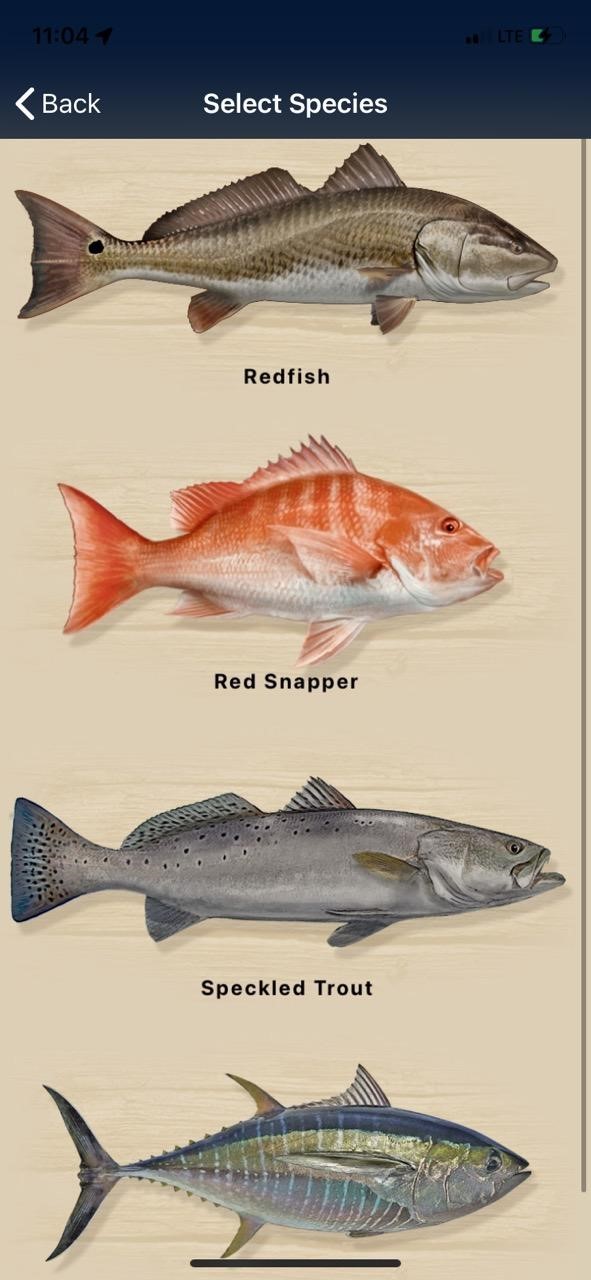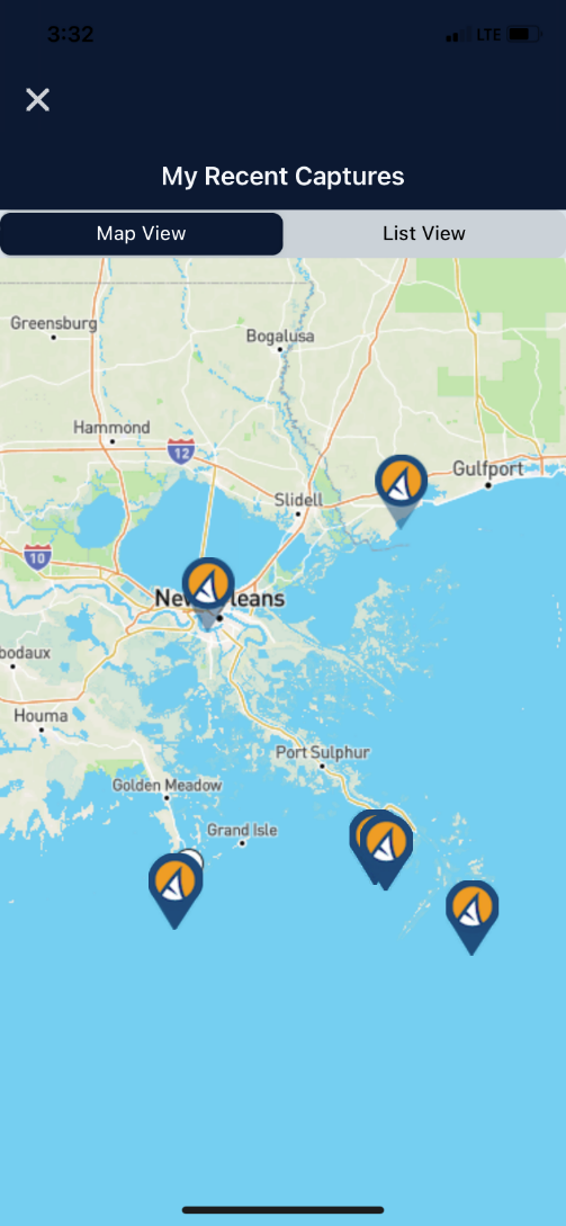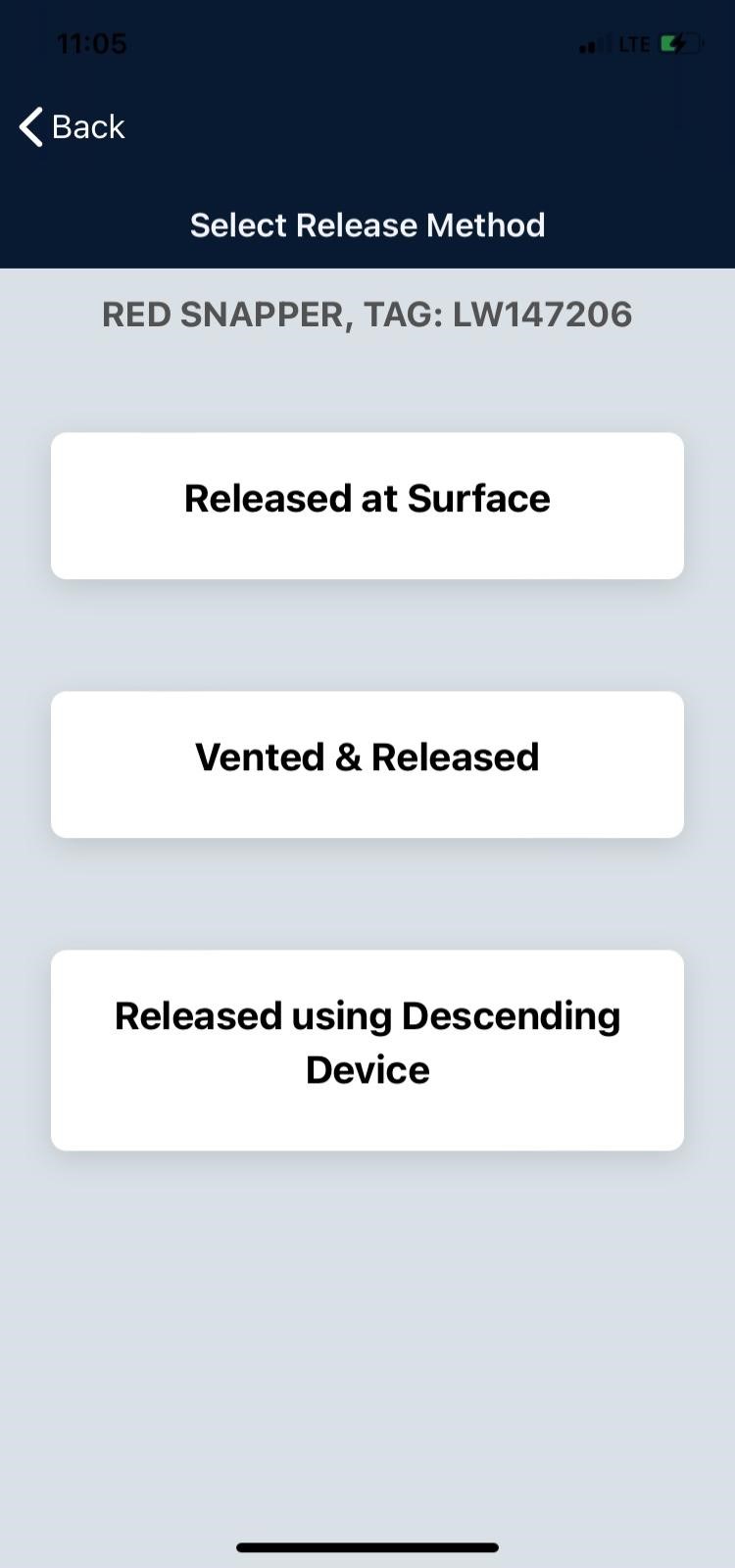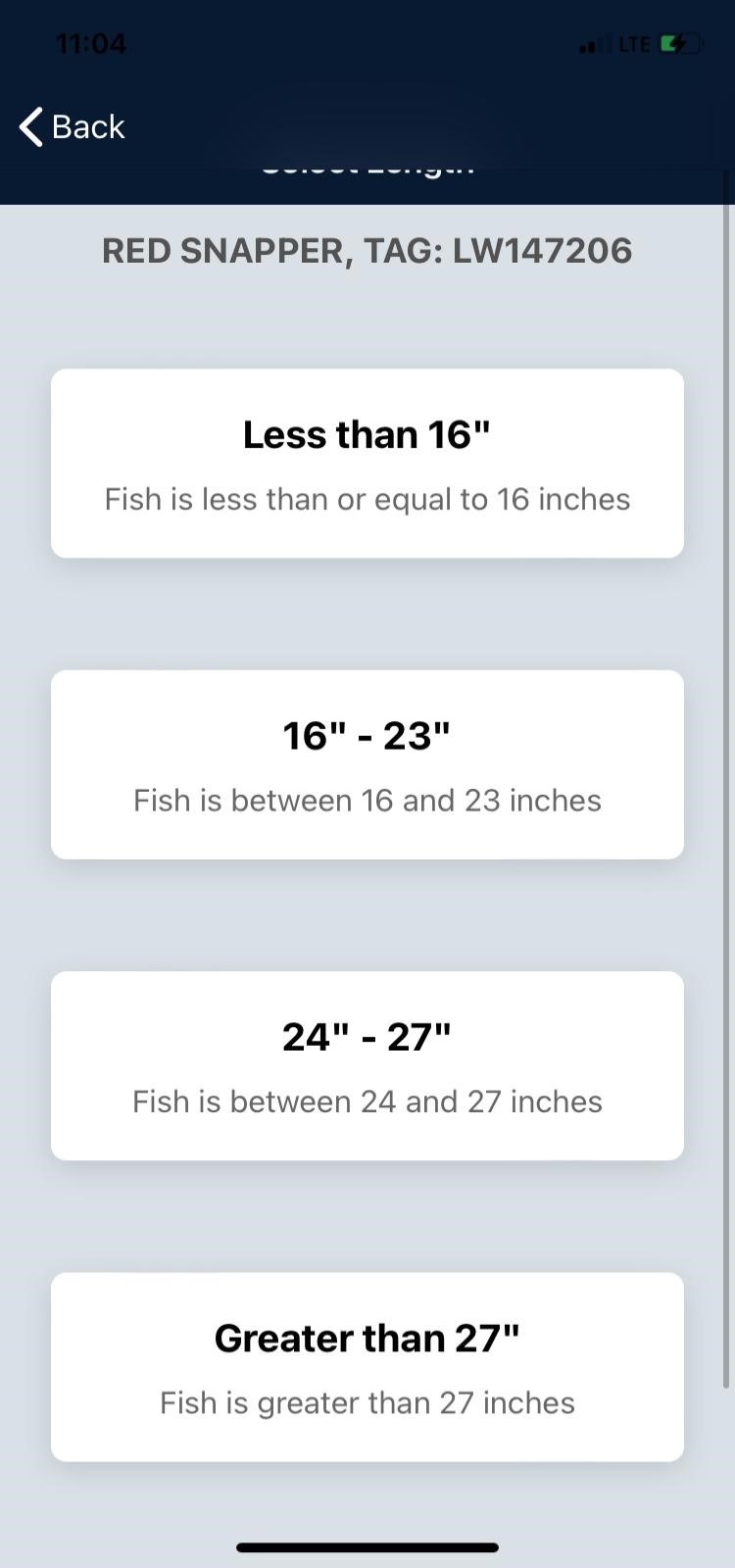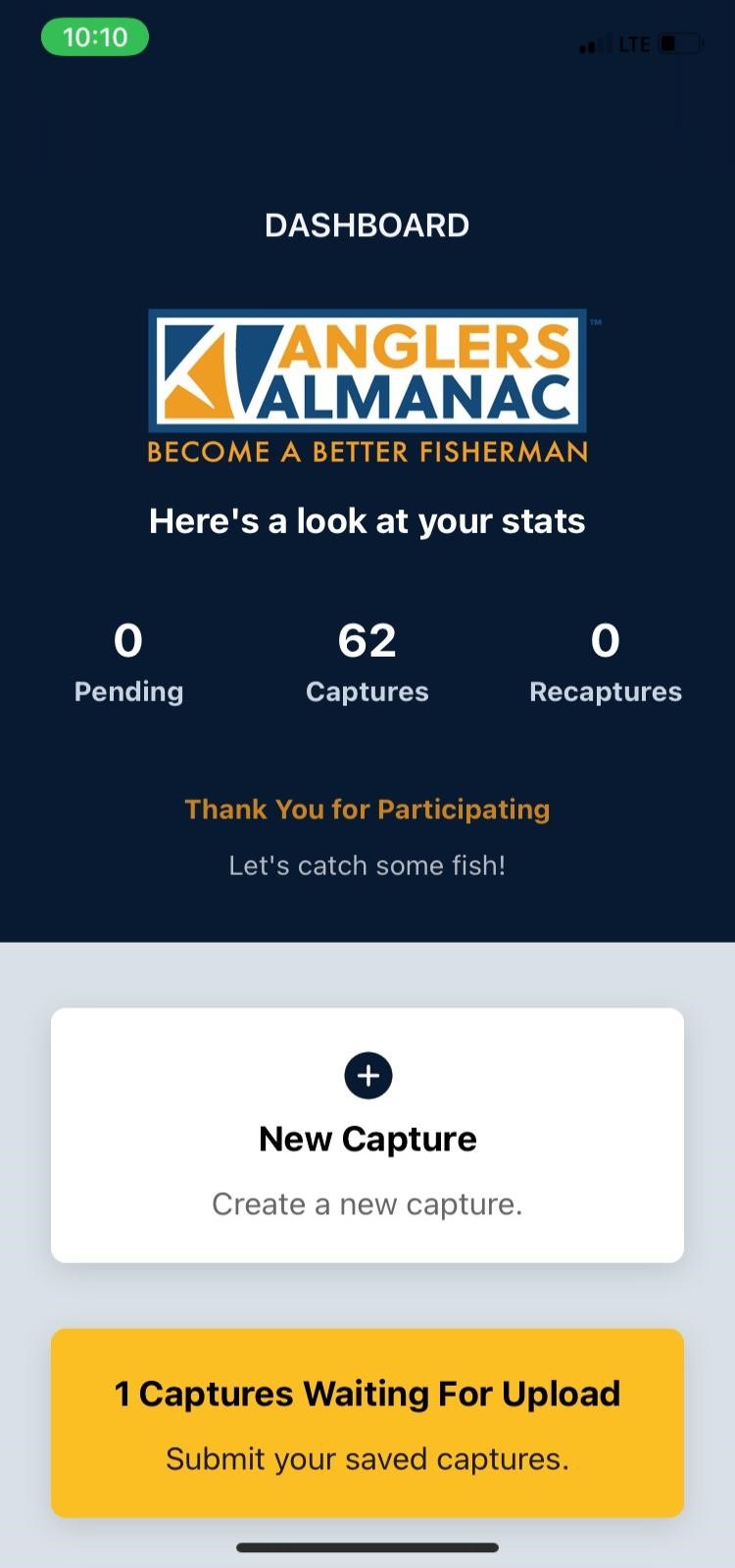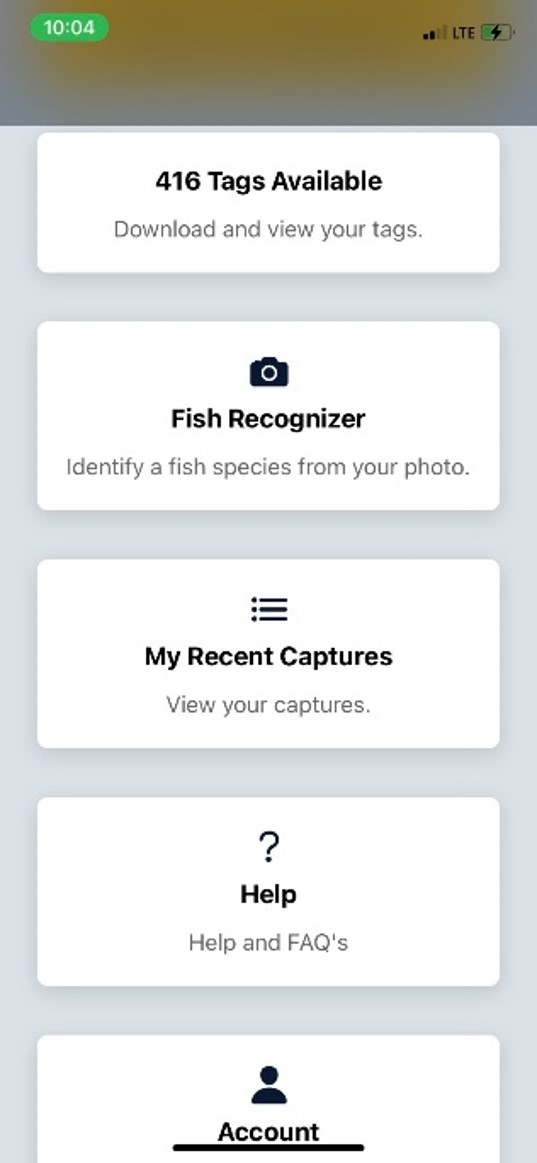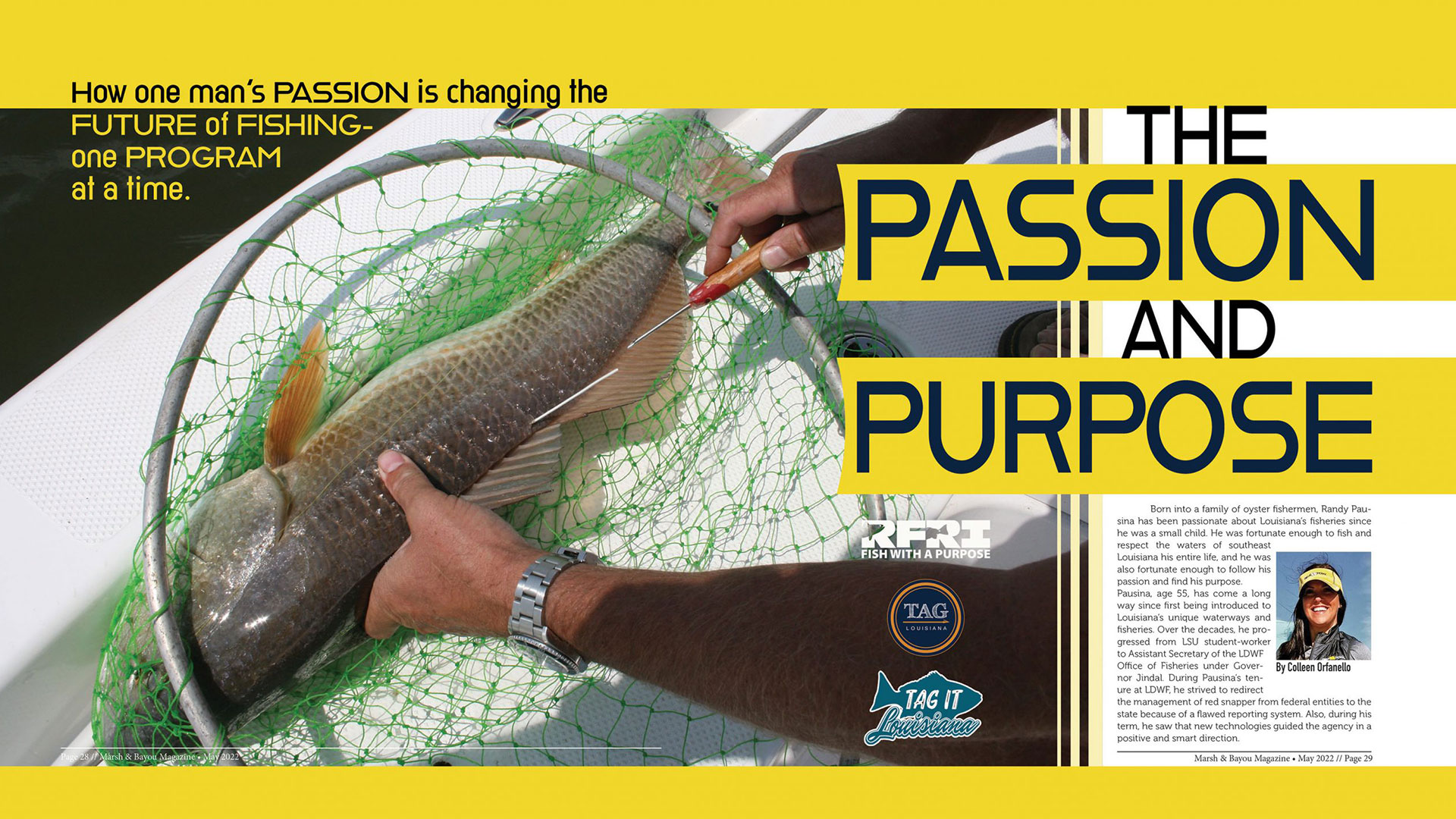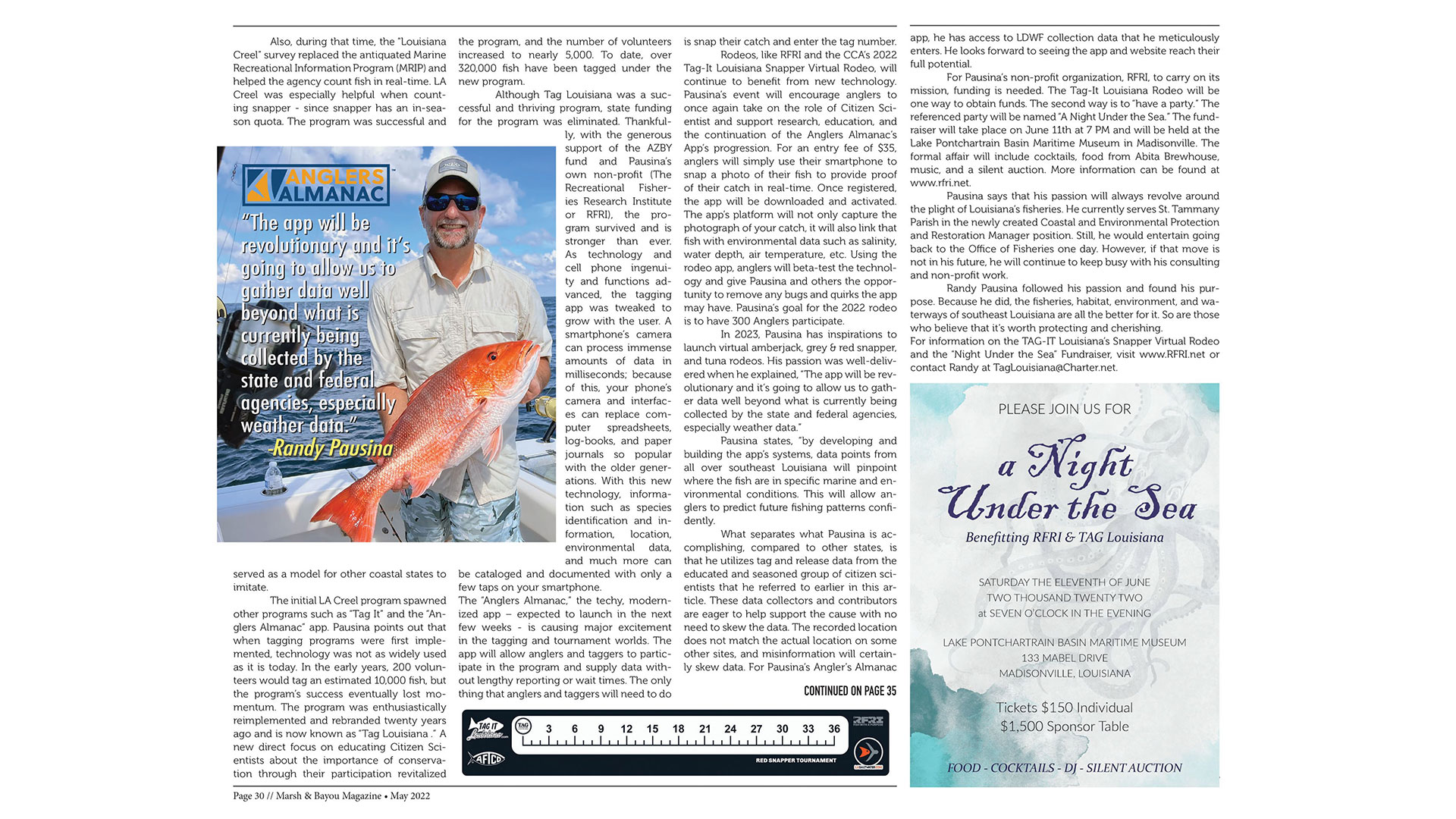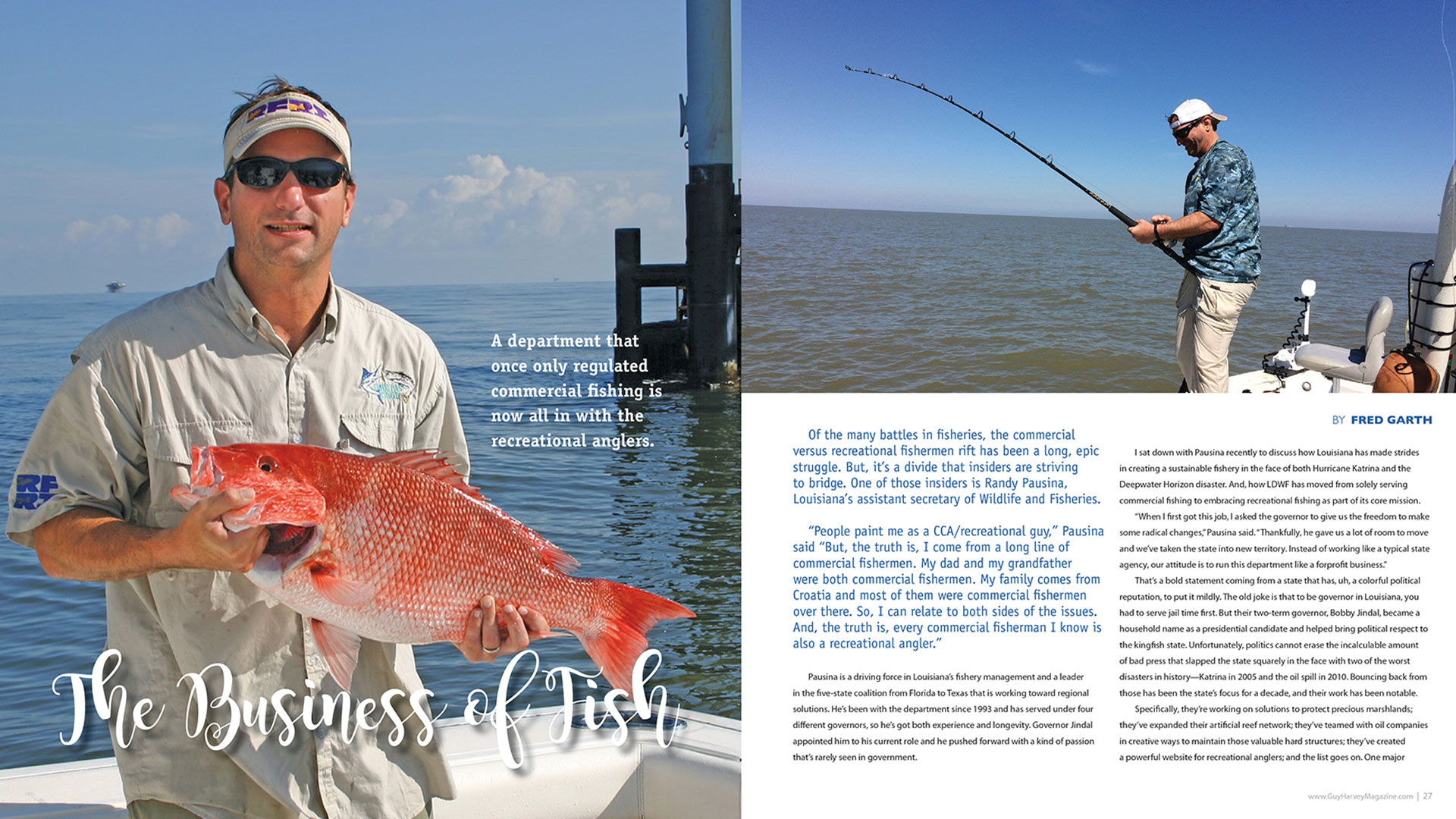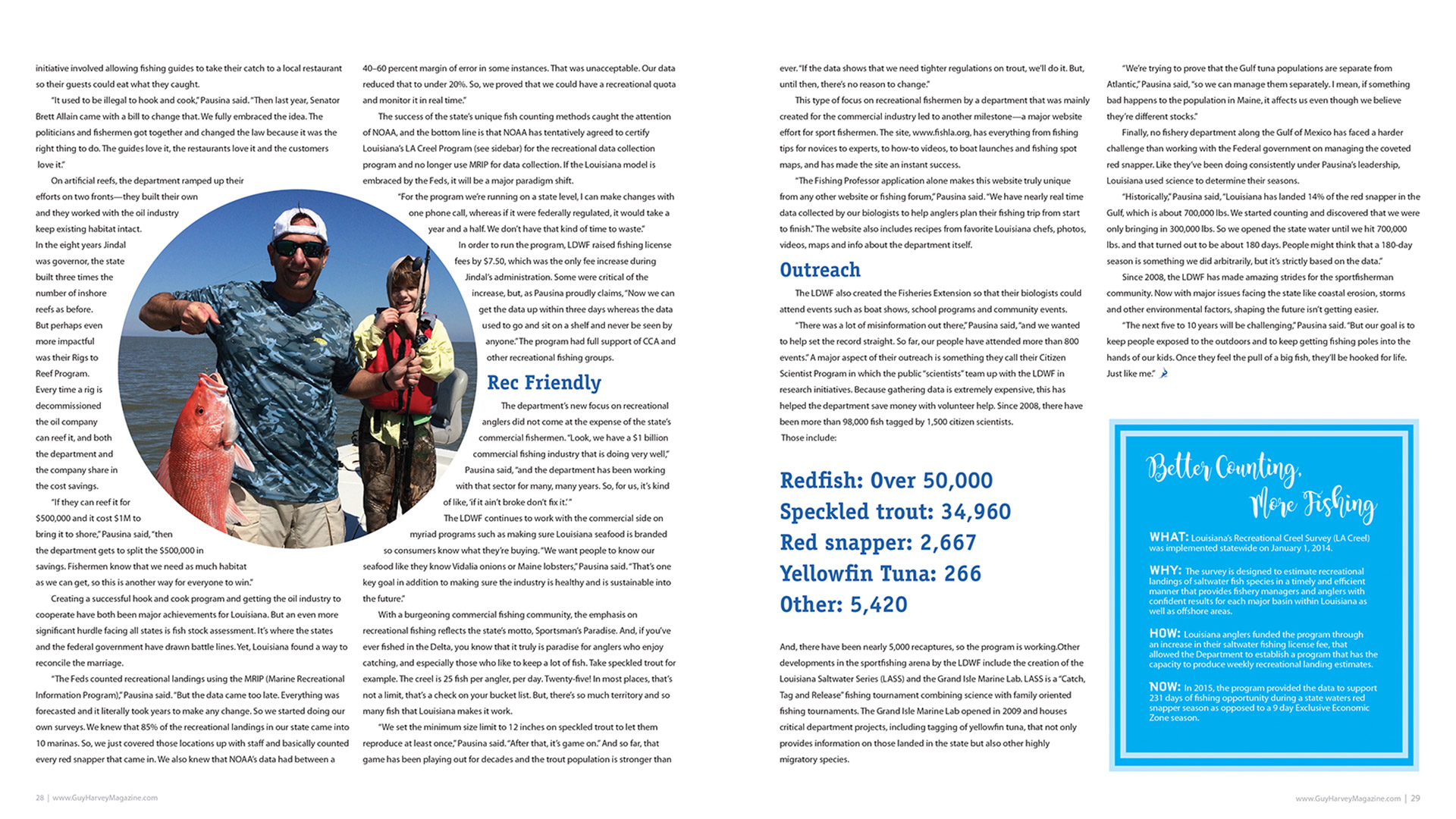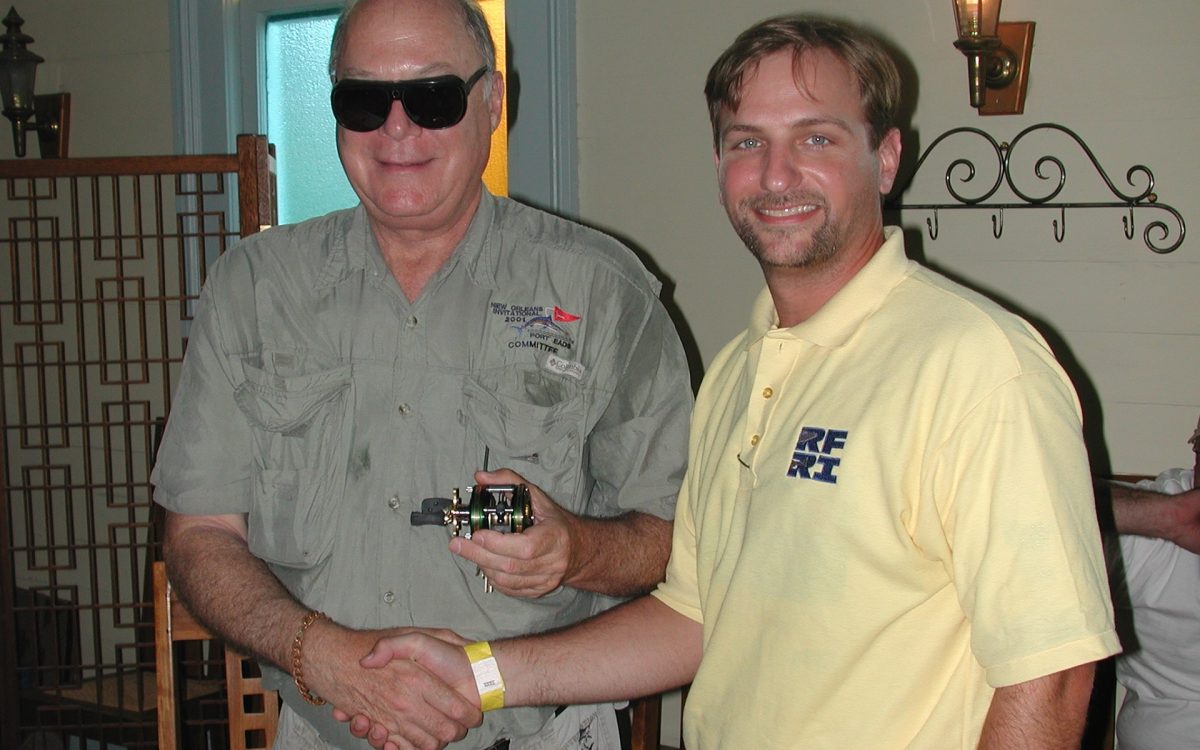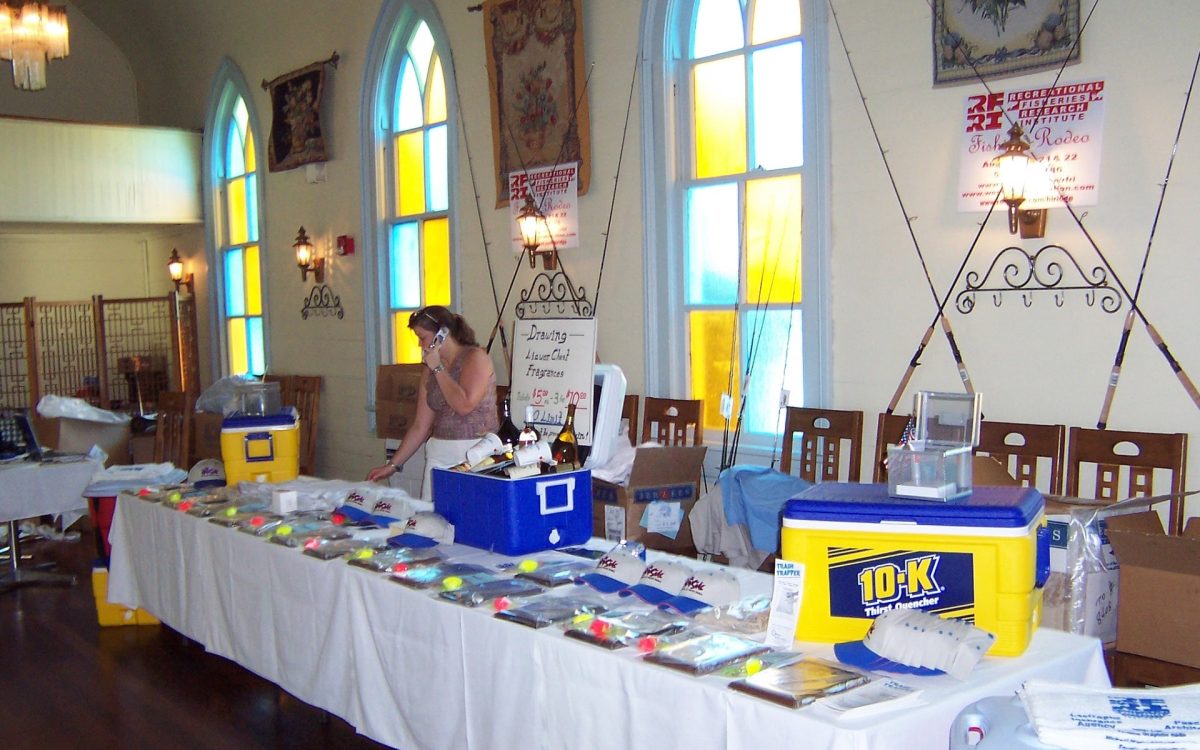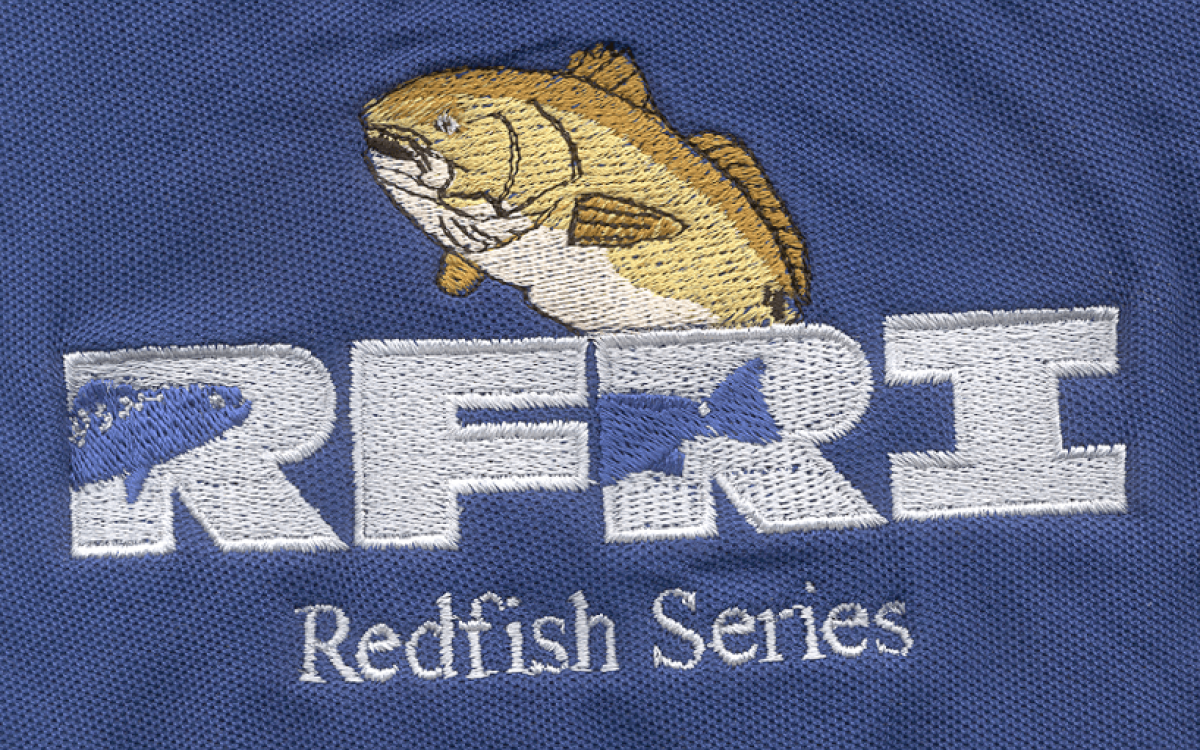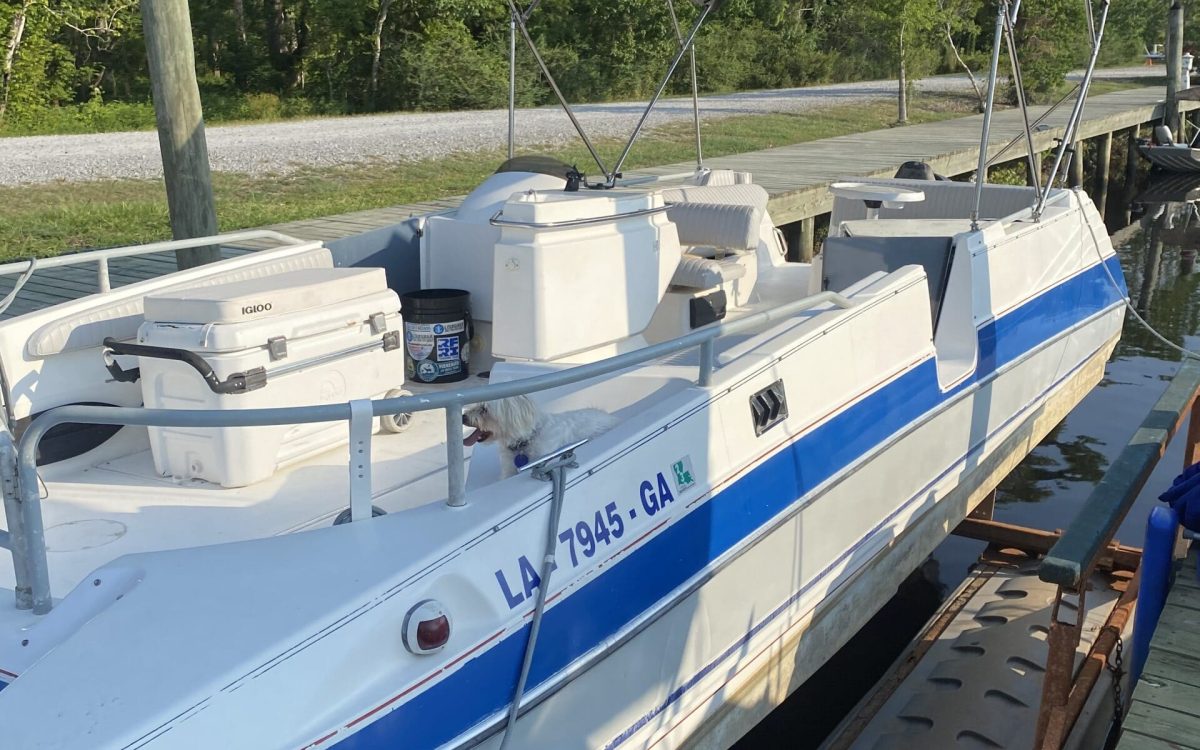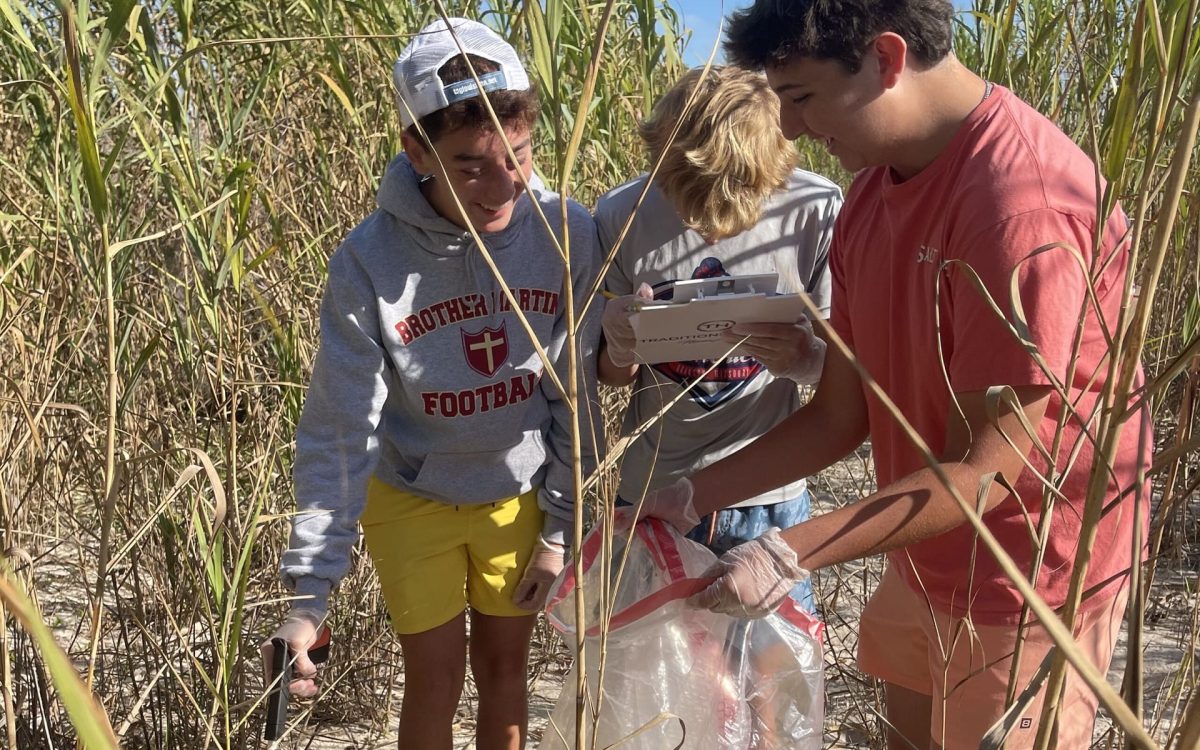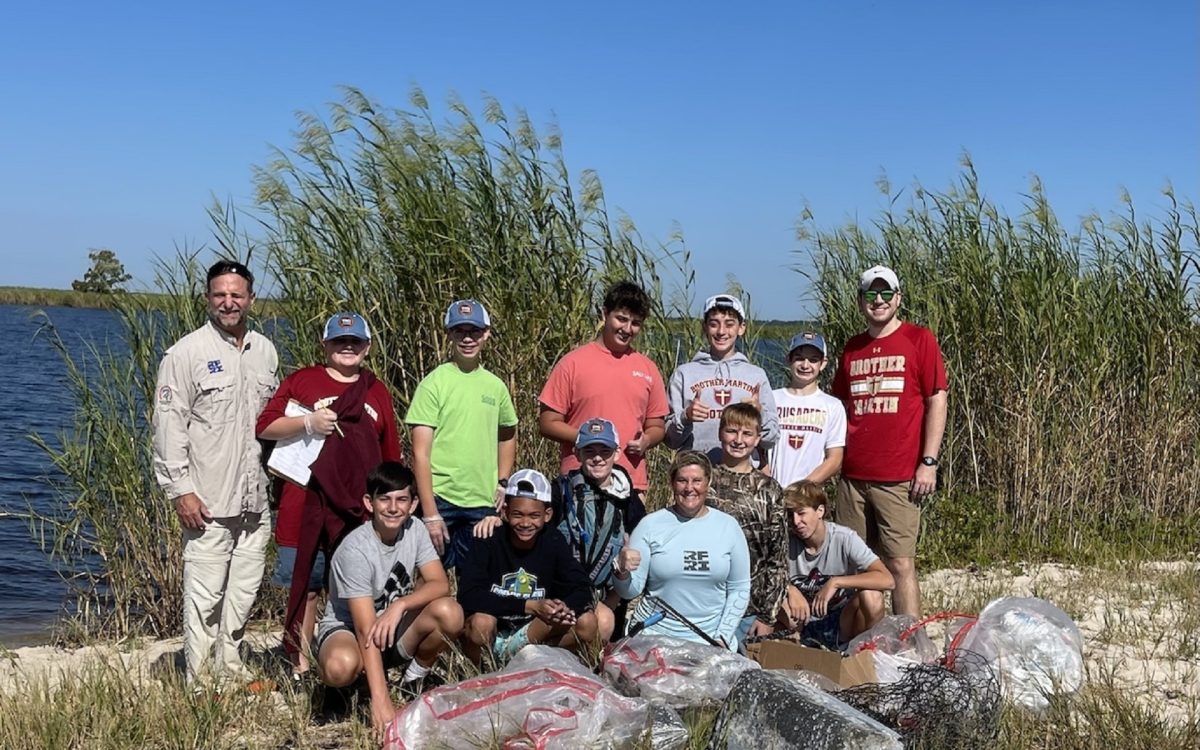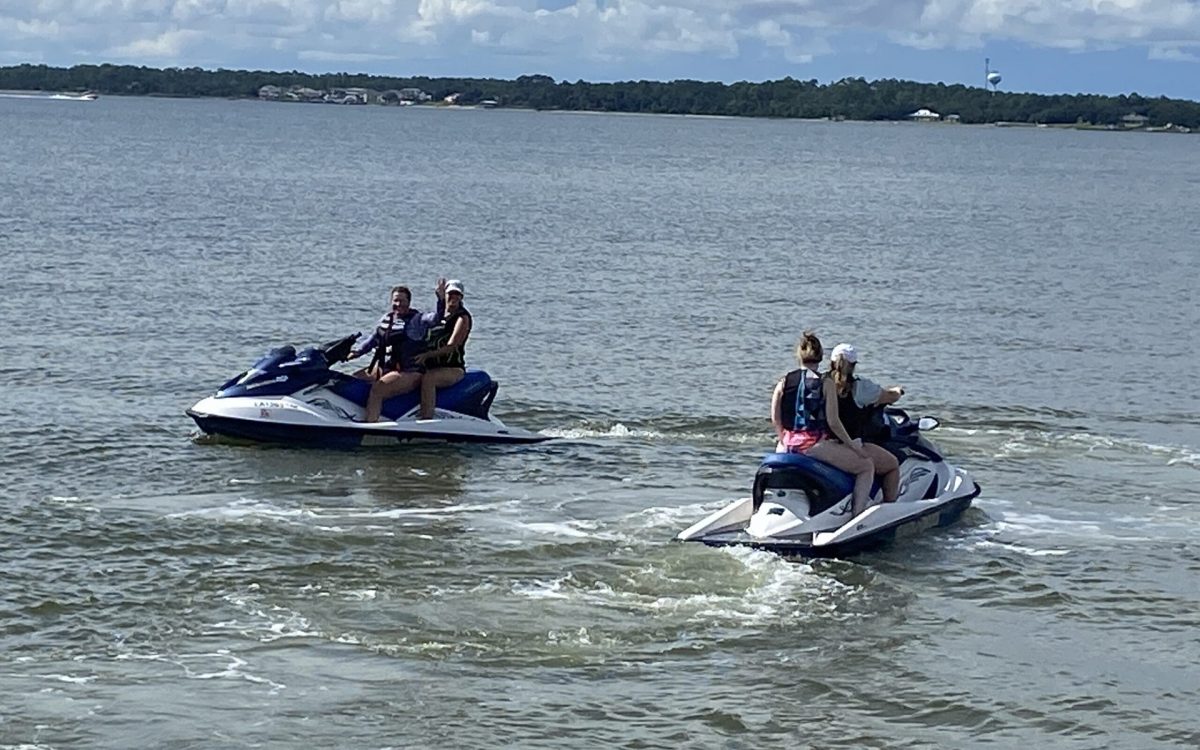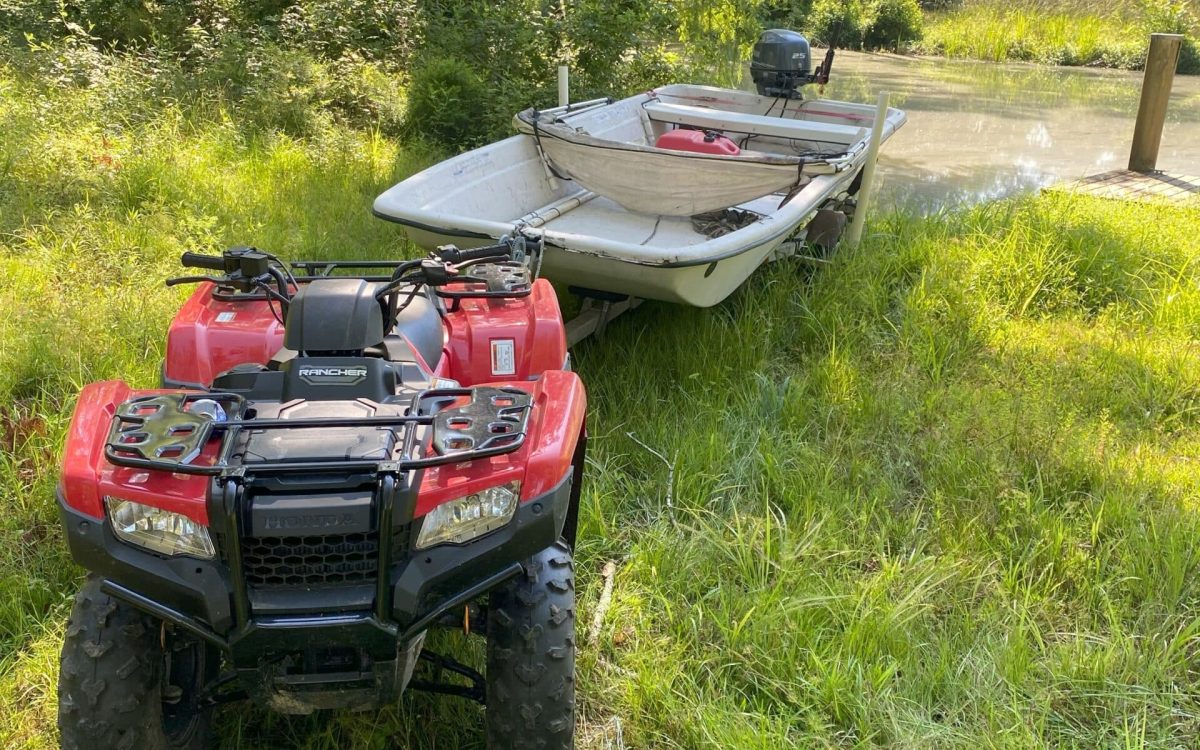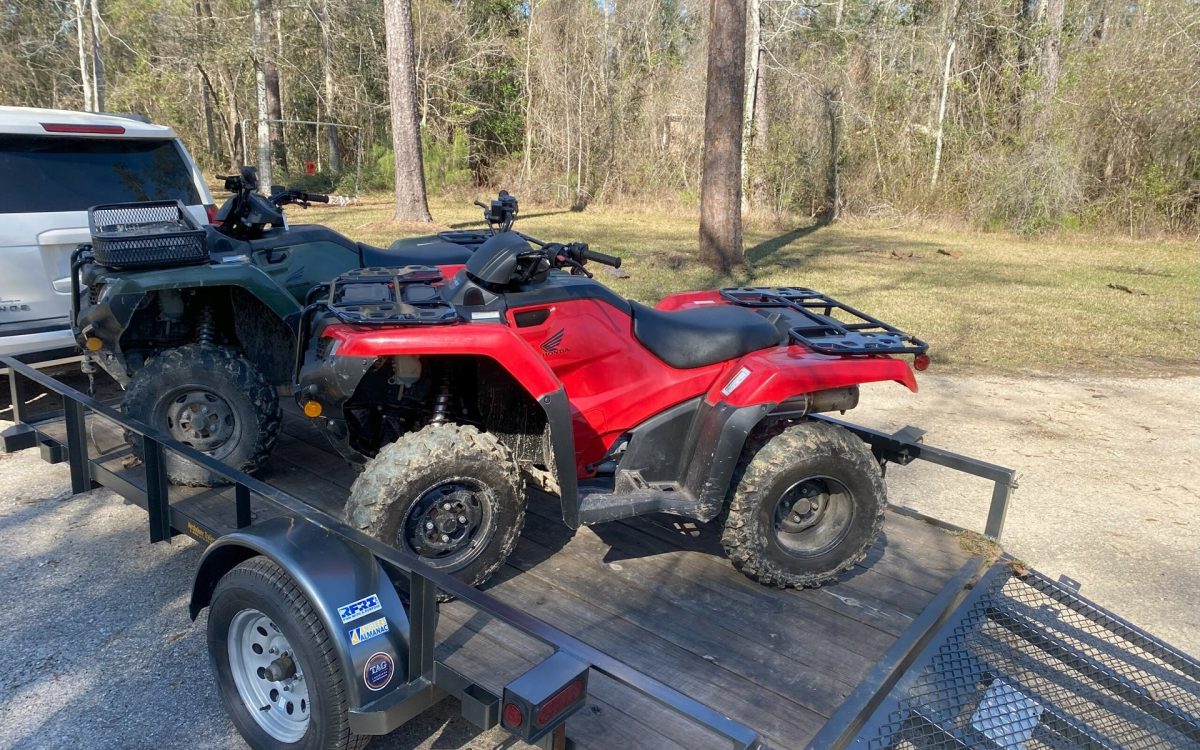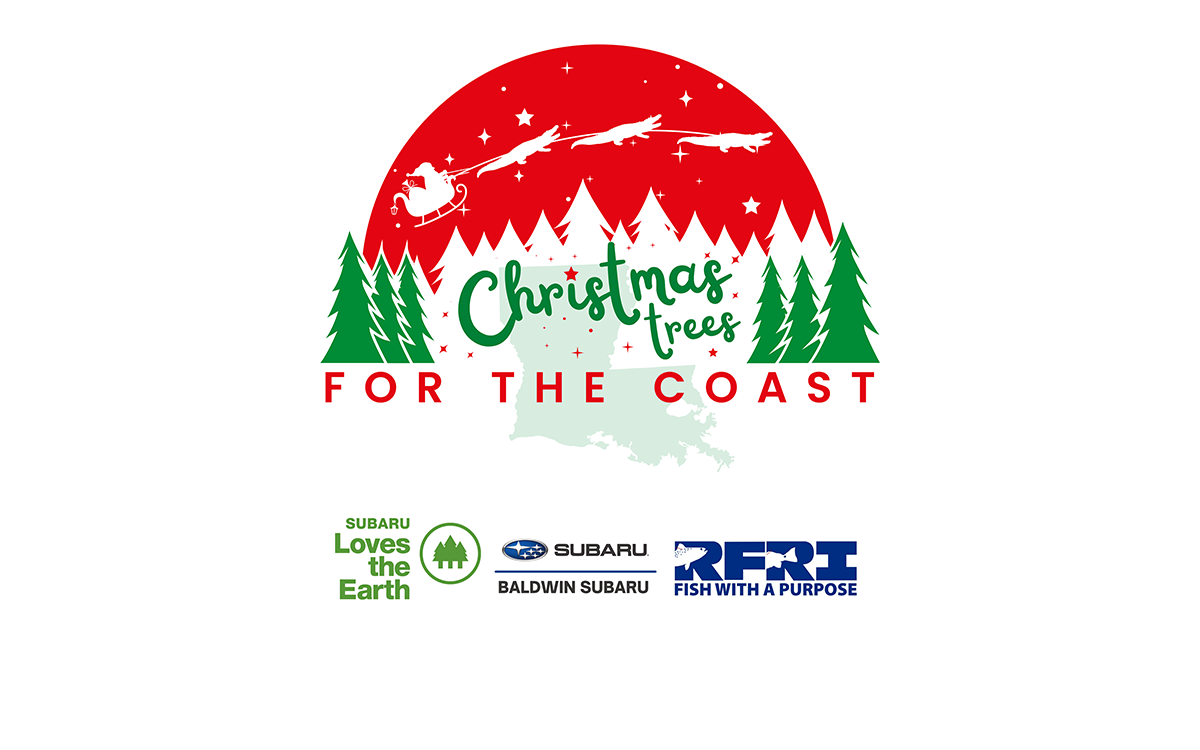
TAG LOUISIANA
TAG Louisiana is a joint program between RFRI and the Coastal Conservation Association of Louisiana. Since its inception in 1985, over 3,000 program volunteers have tagged more than 320,000 fish and reported more than 15,000 recaptures.
The two main objectives of TAG Louisiana are to establish a sound marine sport fish tag and recapture program utilizing a diverse cooperative program specifically designed to employ and educate anglers and to improve our understanding of marine sport fish movements, patterns of habitat use and population dynamics.
TAG Louisiana History
It was with great vision that in 1987 Maumus “Timau” Claveier with CCA Louisiana created a redfish tagging program, the Cooperative Marine Sport Fish Tagging Program. By 1995 it was the nation’s premiere tagging program with over 200 volunteer anglers tagging 10,000 fish a year.
In 1999 the RFRI, through its leadership & partnership building began to nurture this program back to and beyond its early successes. Today, thanks to the RFRI’s nearly two decades of support and rebranding, as it’s known today “TAG Louisiana (TAG)” introduces anglers to a more qualitative or “scientific” method that yields data to better understand the unique life histories of fish, it provides information that is difficult, often impossible, and expensive to obtain and was refocused to employ and educate anglers “Citizen Scientist” about the importance and need for management and conservation through their participation.
Since 2018 RFRI redefined TAG through its “Citizen Scientist” initiative and its new “Fish with a Propose” resolve! Some of the major advancements included a totally redesigned website and data management system and an automated answering service.
RFRI has played different rolls and levels of involvement since 1999; however most recently, during 2020, COVID forced CCA to cut back on staffing and services due to lost fundraising opportunities. To that end the RFRI has been once again asked to administer TAG. RFRI willingly accepted this challenge and together with the AZBY Fund continued to support and manage TAG Louisiana.
Go to the following link to see the RFRI’s accomplishments and future with TAG.
TAG Louisiana Benefits
Fish tagging, which involves attaching identification markers or devices to fish, has several benefits and plays a crucial role in fisheries management and scientific research. Here are some of the key advantages of fish tagging:
Population assessment: Tagging fish allows scientists and fisheries managers to estimate population size, abundance, and distribution. By tracking tagged individuals, researchers can collect data on fish movement patterns, habitat use, and migration routes. This information helps in understanding the overall health and dynamics of fish populations.
Stock management: Fish tagging provides valuable data for fisheries management. It helps determine fishing quotas, catch limits, and conservation measures. By studying the growth rates, survival rates, and movement patterns of tagged fish, managers can make informed decisions to ensure sustainable fishing practices and prevent overfishing.
Migration patterns and habitat use: Tagging studies provide insights into fish migration patterns, including timing, routes, and destinations. This information is crucial for understanding fish behavior, reproductive strategies, and habitat preferences. It helps identify critical spawning grounds, nursery areas, and feeding grounds, which are essential for conservation and habitat protection efforts.
Ecosystem dynamics: Fish are important components of aquatic ecosystems, and their movements and interactions have cascading effects on the entire ecosystem. Tagging studies allow scientists to examine predator-prey relationships, food web dynamics, and the ecological roles of different fish species. This knowledge contributes to a better understanding of ecosystem health and can guide conservation and restoration initiatives.
Collaboration and data sharing: Tagging programs often involve collaboration among researchers, conservation organizations, and fishing communities. By sharing data and collaborating on tagging efforts, scientists can gain a broader understanding of fish populations, which is vital for effective management and conservation strategies.
Public engagement and education: Fish tagging programs can engage the public and raise awareness about fisheries and conservation issues. Citizen science initiatives involving volunteer anglers or community members can contribute to tagging efforts, promoting public participation and fostering a sense of stewardship for fish populations and their habitats.
Overall, fish tagging provides valuable data for fisheries management, conservation efforts, and scientific research. It helps ensure the sustainability of fish populations, protects habitats, and contributes to our understanding of aquatic ecosystems.

READ MORE
Fish Tagged All Time
Fish Recaptured All Time
Captures This Season
Recaptures This Season
Timau’s Tag It Louisiana Red Snapper Tournament
Help us collect valuable info on Red Snapper by taking photos of your catch (via our Angler Almanac app) and tagging your releases.
What is tagging?
The Tagging Program provides a tagging kit, including 25 tags and a tag applicators. Dedicated volunteer taggers receive program gifts and will be given access to the Tagging Community website. Here taggers may track the data they have collected for each of the fish they have tagged, released and reported. Taggers will also be notified if one of their tagged fish is ever recaptured, providing that fish’s history.

How to Tag a Fish
Watch the video for instructions and more information on tagging.
Caught a Tagged Fish?
Record the following pertinent information immediately listed below. Then release the fish with the tag still intact if under/over size or you would just like to catch and release. Call 1 (800) 891-3977 or click here to report your tagged fish and receive your reward.
- Species
- Tag Number
- Location description and GPS coordinates (within one mile)
- Length of the fish
- Time of day
- Date
- Any comments (such as condition)
WANT TO START TAGGING?
Volunteer anglers are trained on proper tagging techniques to ensure survivability of the tagged fish after handling, and are instructed as to the reporting requirements that are expected, such as accurate GPS locations (within one mile) for tracking purposes.
Help Support Tag Louisiana
You can help support the tagging program by making a donation to help us continue to provide supplies and support to the program participants. When we receive a $500 donation it helps us provide 200 tagging kits or one month of website and app software development and maintenance. When we receive a $1,500 donation it helps us provide 10,000 fish tags or 100 tag applicators. Your donations also go towards helping us purchase postage when mailing out tags, kits, and applicators to participants.
You can make a donation online by selecting an amount or entering an amount you choose. You’ll receive a donation receipt by email.
We truly appreciate all who have donated and thank you for your generosity and continued support of this great program.
ALL DONATIONS ARE TAX DEDUCTIBLE.
Managing the future of fishing in Louisiana is a monumental task and in order for the RFRI to tackle fisheries, habitat, and coastal restoration projects, funding is required. Your contributions will greatly protect, enhance and maintain the Gulf Coast Marine Fishery through science, education and public involvement.











